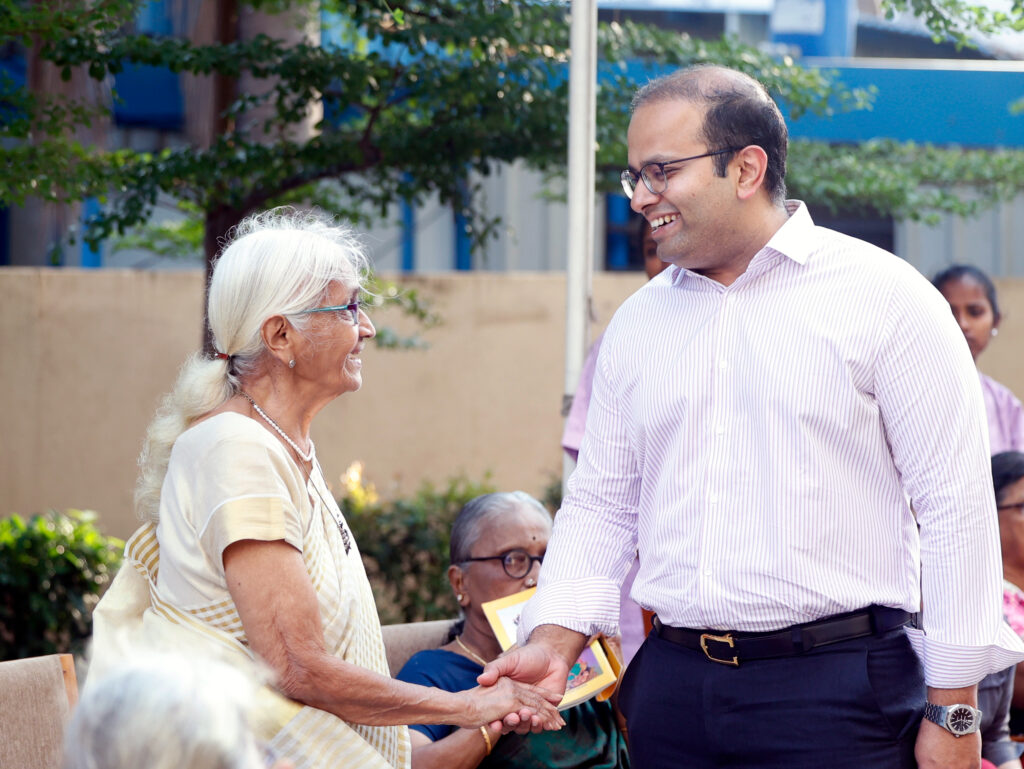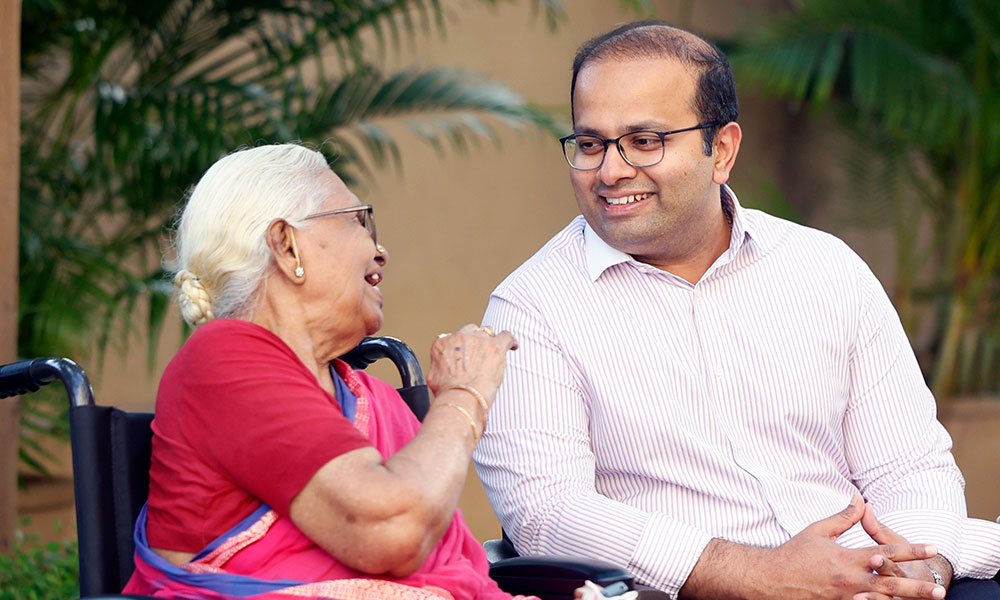In Dr. Karthik Narayan’s experience, business can’t succeed without the right policies.
He should know: He had to help rewrite the policies governing elder-care facilities in India for his business to succeed.
And so it has.
Returning to India a few years after earning his Master of Health Administration from the USC Price School of Public Policy in 2013, Naranyan launched Athulya Senior Care, which has grown into his country’s largest assisted-living company.
“We’ve expanded across India. We are one of the first senior care companies funded by Morgan Stanley. And the company today employs close to 1,500 people, 75% of whom are women,” said Narayan, who earned his M.D. in India.
Athulya, which means “immeasurable and unique,” encompasses more than 1,000 rooms in 10 facilities in five South India cities.
The need for elder care in India is overwhelming. Narayan says the country has more than 140 million seniors with fewer than 20,000 senior care/senior living beds to care for them. Thirty percent of the elderly live alone, with many facing physical and mental decline.
Launching Athulya to help meet this need required a lot more than bricks and mortar. First, the policies governing the fledgling industry had to be updated.
“When I wanted to enter this space, the policy was the biggest gap for the sector’s growth,” Narayan said during a recent visit to USC. “There were no standards in place. There wasn’t a clear process on how to register yourself and how to attract investments.”
Thanks to his training at the USC Price School, Narayan was able to help the government update its policies – and launch not only his company but a new industry.
“With the skill set that I got at USC on policy analysis, policy drafting, I sat with the government very closely, worked with them, set standards for the country … needed to run a senior care facility and quality parameters to maintain service levels on par with international standards,” he said. “Today, if there are 150 operators in this senior care space, it’s because the policy … was shaped to where it is today, attracting investors and more entrepreneurs.”
Narayan keeps his hand in policy. He is the youngest member of the National Human Rights Commission of India, and he also serves as an expert committee member for the Government of India in its national policy efforts. And he’s a board member for Association of Senior Living India, the country’s largest industry group for elder care.

But the most satisfying aspect of his career is watching seniors, some of whom were living alone and neglected, blossom when they are given proper care.
“I do spend a lot of time with our customers, grounding myself, sitting with them, interacting with them, understanding their issues, understanding their social problems, understanding their clinical issues,” Narayana said. “Being a doctor, that really helps when I round. It not only gives me the clinical issues that they’re going through, it also helps me understand emotional and mental health issues that they go through, which are among the leading issues that seniors face.”
Narayan said loneliness is an acute problem among the elderly in India and has been caused in part by the emigration of many of its young people seeking careers outside of their home country.
“Imagine all these years children lived with them,” Narayan said. “They sacrificed everything for their children. Now one day, the son and daughters move out and maybe the life partner, in some cases, is not there anymore. It’s just them in this big house, and where they’ve lived with a lot of memories is all gone in one fine night.
“The biggest solution long-term care organizations work towards is providing that companionship and community for them to really age in a very dignified manner, versus staying alone at home and really struggling to figure out their day-to-day activities.”
Narayan’s appreciation for the importance of community was shaped in part by his experience at the USC Price School.

Master of Health Administration
Shape Systems for Healthier Communities
USC’s MHA offers unparalleled academic and professional training for careers in health administration and policy.
Find Out More“One of my classes to remember was with Professor (LaVonna) Lewis where we spoke about policy advocacy and, more importantly, community engagement. That sometimes is not taught. I feel it was something very different here, where how important it is for an individual to work with the community to drive change,” Narayan said.
“I remember that Karthik spoke often about the role of physicians in our health-care system and in the health of the community in general,” Lewis said. “It is exciting to hear that his career path has moved him from conversations about the importance of community to his making community engagement an important pillar for building assisted-living facilities.”
As with so many USC Price alumni, Narayan chalks up part of his good fortune to the Trojan Family Network.
“To be a successful entrepreneur requires, of course, an investment skill set, but more important is the network. I’m a direct beneficiary of the USC alumni network who nurtured me … from getting me access to investors or getting me access to infrastructure partners,” he said. “And it’s just not U.S., it’s global.”




